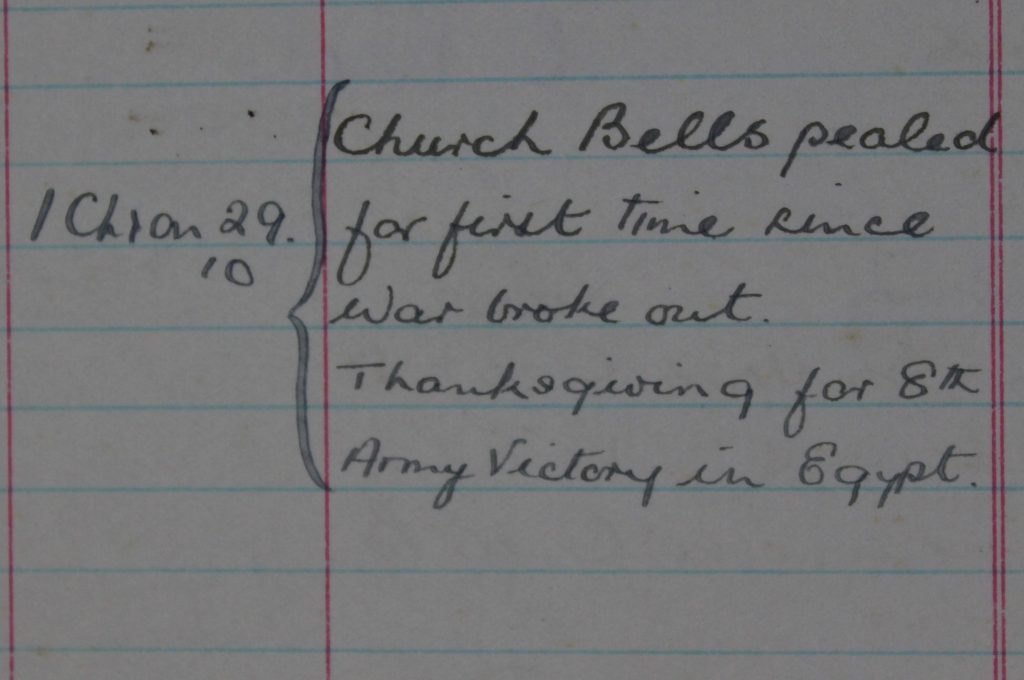After almost three years of war, apart from victory in the Battle of Britain, there had not been much good news for the British public. In particular, the end of 1941 and most of 1942 had been particularly bad with the Japanese entry into the war and their subsequent rapid advance in the far east, including the loss of Singapore and the shocking sinkings of HMS Prince of Wales and HMS Repulse, while closer to home the fall of Greece, Crete and Tobruk, witnessed further terrible losses for British and Commonwealth forces.

THE CAMPAIGN IN NORTH AFRICA 1940-1943: EL ALAMEIN 1942 © IWM (E 18513)
Although earlier campaigns in north Africa had brought about some spectacular advances against the Italian army, the entry of German forces under Erwin Rommel, the famous ‘Desert Fox’, had seen these wiped out, with Egypt and the Suez Canal being threatened. The re-equipping of the Eighth Army and their stand in prepared positions in later 1942, along with the appointment of Bernard Montgomery, or ‘Monty’ as he became known, along with the exhaustion of the Axis forces, gave the Allies a crucial opportunity to strike back. The second battle of El Alamein was fought between 23rd October and 4th November and resulted in a victory for British and Commonwealth forces. Churchill famously summed up: ‘This is not the end. It is not even the beginning of the end. But it is, perhaps the end of the beginning.’
Why then is the Essex Record Office writing about an event that took place 80 years agon and a couple of thousand miles away. Well Churchill wished to have a victory for which he could order the ringing of church bells to raise the spirits of the nation. These had been silenced at the beginning of the war, only to be used as a warning of invasion. It was ordained that on Sunday 15th November 1942, the church bells were to be rung to mark victory at El Alamein. Eric Rudsdale recorded what must have been a very emotional event:
Dull morning, overcast. Carted hay to mill, and then went up to Barn Hall for a truss of straw. As I came back I heard St. Peter’s bells begin to chime, slowly at first, then bursting into a peal – The “great victory” celebration. This is the first time for 2½ years that we have heard bells, and I do not suppose we shall ever hear them again. Soon I heard St. Leonard’s Hythe begin, and the noise of the bells coming over the radio from a house in Bourne[?] Road. As I went home, the other bells began to call to service. The solitary cracked[?] bell of St Mary Magdalen clanging slowly, just as it did when I was a child. Few people in the streets going to church, and some children delivering newspapers, exactly like a hundred other November Sundays, a reminder of all those lovely chaps that will never return.
D/DU 888/25/3, diary of E.J. Rudsdale, pp.540-41

Eighty years on, while the sands of Egypt are once more the centre of world attention, although this time for the battle against climate change (COP27, 6th – 18th November 2022), we can try and imagine how emotional it was to hear the bells ringing out over Essex on a dull and overcast morning in 1942, and spare a thought for ‘all those lovely chaps’ who did not return.
